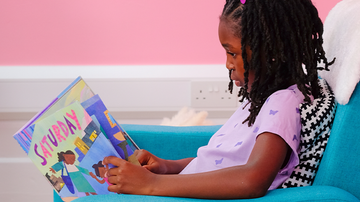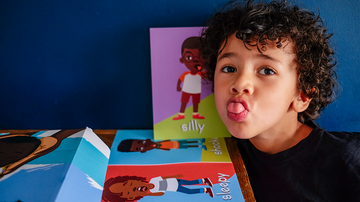For parents who are struggling to make time to read to their children, Jessica Logan's research has provided a compelling reason to make storytime a priority. The results of her study have shown that children who are read to more often have better language skills and richer vocabularies than those who are not as frequently read to. In short, reading to your children can give them an invaluable head start in life. We’ve all heard the importance of reading to children from a young age. Logan’s research has shown that kids who are read to regularly hear 1.4 million more words by Primary School than those who aren’t. Even kids who are read just one book a day will hear 290,000 more words than their peers. This ‘million word gap’ can be a key factor in explaining differences in vocabulary and reading development. Let’s explore what this means for parents and how they can help close the gap!

The Benefits of Reading to Children
In her study, Logan found that when parents made the effort to read with their children at least once daily, the children developed better language skills overall and had larger vocabularies than those whose parents did not prioritize storytime. This finding is supported by other studies which have shown that reading aloud to a child from birth can help build key pre-literacy skills such as phonological awareness and print motivation. It can also lead to increased academic achievement later in life, as well as improved verbal reasoning and critical thinking abilities. When parents take the time to read with their kids, they are helping them develop strong literacy skills that will serve them throughout their lives.
The Power of Reading with Kids
When we read to children, it not only helps them learn language skills but also encourages bonding between parent and child. Children learn best when they feel safe and secure, and reading together promotes this kind of connection. It also helps develop early literacy skills like phonemic awareness (the ability to recognize sounds) which is important for learning to read later on in life. Additionally, having conversations about the stories you read together encourages children to become active participants in their own learning process, asking questions and making connections between what they see on the page to their world.

How Parenting Style Impacts Reading Habits
Logan's research also revealed that parenting style was linked with how often children were read aloud to. Her findings showed that parenting styles such as authoritarian (strict) or neglectful (lax) both led to lower rates of daily reading compared with authoritative (warm and supportive) parenting styles. This suggests that even if you don’t feel like you have much time for storytime, developing a warm relationship with your child may be enough motivation for you both sit down together and dive into a good book each day!
The importance of reading cannot be overstated; it provides so many benefits for young children's development that it should be considered an essential part of every parent's routine. Fortunately, making time for reading does not require major lifestyle changes; all it takes is a few minutes each day dedicated solely for storytime. So whether you’re looking for ways to give your child an edge or just want some quality bonding time together, consider making regular storytimes part of your family culture –– you won't regret it!



